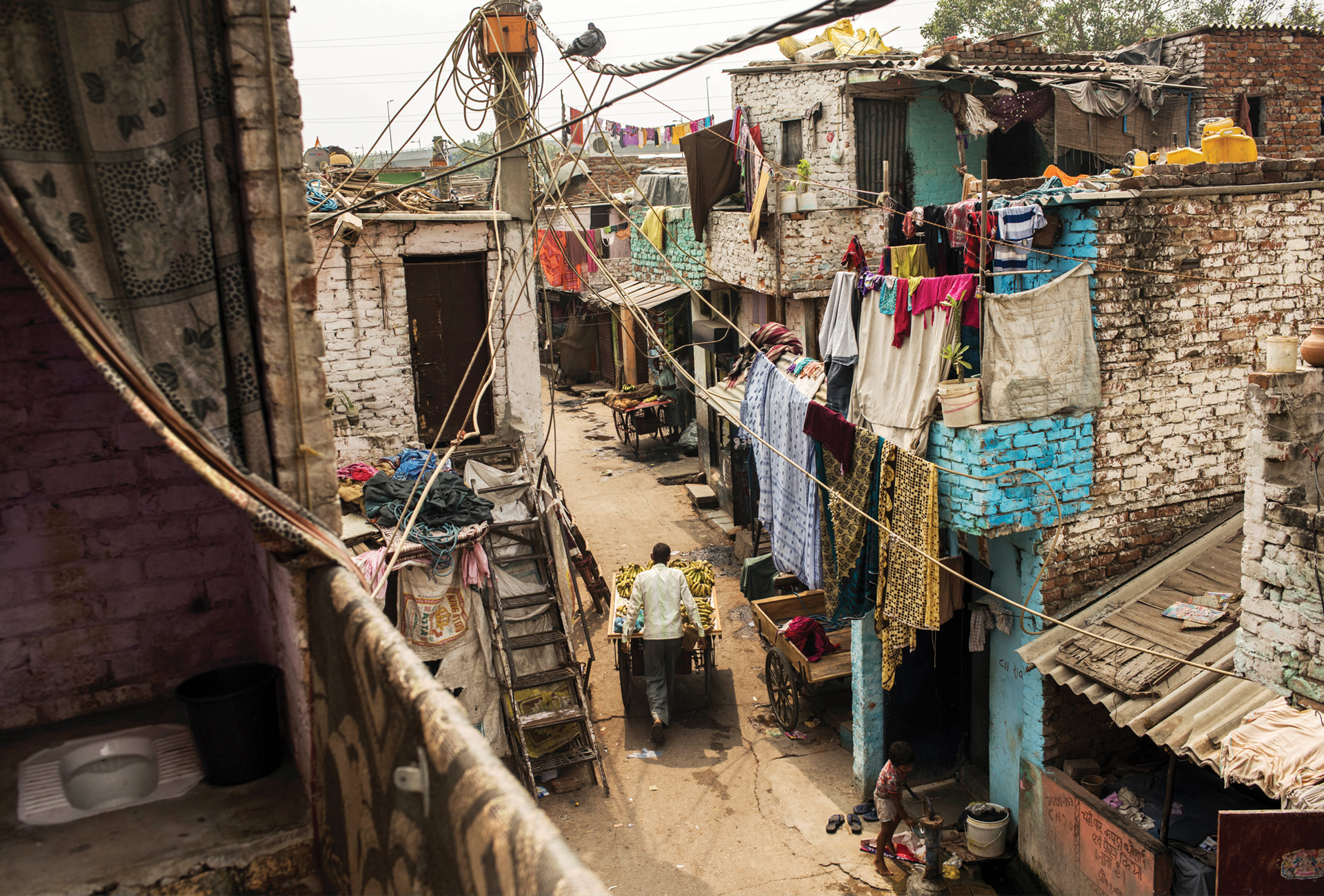UT Austin economist Dean Spears and sociologist Diane Coffey founded the Research Institute for Compassionate Economics (r.i.c.e.) in 2011 with the goal of improving health and well-being in India. They focus on an important driver of economic development: the health of children.
Despite rapid economic growth, India’s infant and under-five mortality rate continues to be higher than its poorer neighbors in Bangladesh and Nepal.
“Money is not the only component of a good life — another is health,” Spears says. “When a population’s children are not as healthy as they could be, the whole society and economy will eventually miss out on well-being.”
Their work was featured in National Geographic magazine in August 2017 in an investigative story on the dangers of rural Indian communities’ unsanitary practices of defecating outdoors. Like Coffey and Spears’ book, Where India Goes, the narrative wrestled with offering feasible solutions for outdoor defecation — mainly, constructing latrines — while addressing the communities’ “unique legacy of untouchability.”
Unlike in other countries, where it is an unpleasant and low-ranking job to empty a latrine pit, in India this work is associated with a deep stigma of untouchability and the lowest social rank in the caste system, Spears explains.
“When big problems are driven by social inequality, we should not expect it to go away overnight. As we write in the book, working to end casteism and untouchability is working to end open defecation and vice versa,” Spears says. “The exact right things to try are a matter for trial and error and iterative improvement, which is exactly why more people need to be involved.”
